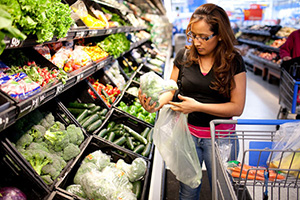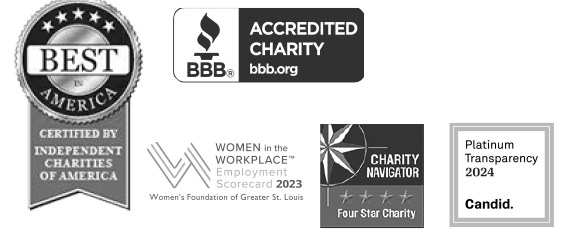I doubt I’ve ever felt more homesick than in a foreign grocery store. As an international student in Germany, I often struggled to find familiar, to my mind, basic foods like sweet potatoes, pecans, brown sugar, or vanilla extract. Eventually, I came up with substitutions and found specialty stores where I could procure the staples of home, albeit at a high markup. After a few months, I was able to make proper chocolate-chip cookies and other American delicacies. I had the advantage of living in a major city in the heart of western Europe; would I have had the same luck acquiring familiar groceries in almost any other part of the world?
Imagine entering a market and seeing almost none of the products you are accustomed to; products you consider as basic as milk and eggs. There is a vast array of food and other items, but much of what you see on the shelves is unrecognizable. Is it even food? That is what many immigrants to the United States experience when they first enter an American grocery store.
In the Cooking Matters program, we recognize that shopping healthy on a budget can seem difficult, even for those of us who were born and raised in the United States! That is why we offer Cooking Matters at the Store, a guided grocery store tour designed to highlight healthy choices and money saving tips in each major department. Knowing how tricky grocery shopping can be for the average American, it stands to reason that a seemingly simple grocery list can pose an a huge challenge to a recent immigrant.
Who better, then, to engage in the Cooking Matters at the Store program than the recent immigrant and refugee clients of the International Institute? This nonprofit organization, based in South City, provides essential services, like translation, education, employment, and housing. Now, through a partnership with Operation Food Search, they also offer Cooking Matters at the Store!
Cooking Matters coordinator Christina Popp has already led the first of what will be an ongoing series of tours with the Institute. The 7 participants on this first tour had all recently arrived from Congo and were still unfamiliar with their local supermarket. They had many questions; some typical to a Cooking Matters at the Store tour (like, “Why are fresh vegetables so expensive?”) and others more surprising (“Why aren’t the eggs as flavorful as in Congo?” and “Where is the camel milk?”). Christina was able to share tips on getting good deals on produce (buy in season and check unit price, while not forgetting about the frozen and canned fruits and veggies) and help familiarize these new St. Louisans with their local grocery options.
The American supermarket may never feel like the markets of home, but by increasing familiarity with the ways we can all save money while purchasing high quality produce, eggs, dairy, and more, Cooking Matters at the Store can connect international shoppers with the power to make healthy, informed decisions. We may not be able to locate camel milk, but we can certainly help make the adjustment to the local food scene easier and more affordable. We are looking forward to continuing this partnership with the International Institute in order to aide more recent immigrants and refugees in their transition to all aspects of American life.



